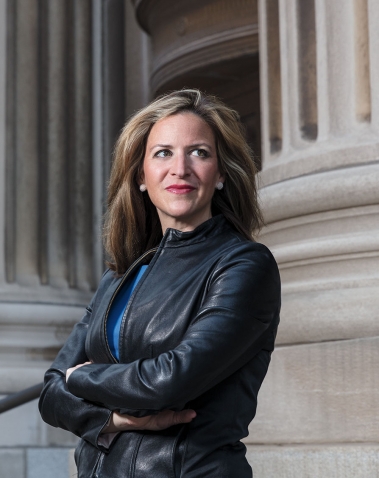Thank you, Secretary Benson
Defending democracy! Highlighting work of Michigan’s Secretary of State @JocelynBenson (“Defender of the Vote,” spring ’21) standing up to #TheBigLie; sharing what really happened with the 2020 election; in true #Wellesley colors.
@mfarhadi (Mani Ardalan Farhadi ’84), Via Twitter, Los Gatos, Calif.
An Amazing Editor
Sad to part with [Alice Hummer], she always has very thoughtful and insightful commentaries for the magazine. Best of luck with your next chapter of life, and I’m sure when you look back a decade from now, you will marvel at your courage to step into the unknown.
@KwanKew (Kwan Kew Lai ’74), Via Twitter, Belmont, Mass.
Alice Hummer is one of a kind. Smart, thoughtful, a beautiful writer, and a golf cart pilot extraordinaire. Wellesley was lucky to have her talents for so long, and I was so lucky to have her as a colleague.
Alison Greer ’87, Former executive director, WCAA, Baltimore
Thank you, Alice, for your work with Wellesley magazine. I have always enjoyed reading your columns and appreciate all your work on behalf of Wellesley women everywhere.
Margaret Feltz ’95, Wilton, Conn.
Remembering Shirley Young ’55
Beautiful tribute (“In Memoriam,” spring ’21). Shirley embodied what we alumnae aspire to: enjoying life, being an active participant, helping others, and just generally being an example of what to strive to become as a person.
Francine Berth Myles ’57, New York City
A Delicious Issue
This was exactly what I needed to get through a Friday @Wellesleymag! So proud to see the work the [Community Inclusion Facilitator] students are doing, and recipes too!
@v_raines (Vicki Raines Laymon ’04), Via Twitter, Astoria, N.Y.
Immigration Is the Solution
It’s great to see Deborah Lynn Blumberg ’00 and Wellesley economics professor Phillip Levine connecting the dots between plummeting birth rates and the important role immigration plays for the U.S. economy (“The Pandemic Baby Bust,” spring ’21). There is a long-recognized tension when discussing overpopulation: Too many people means strains on our natural resources and ecosystems, especially in high-consuming countries like the U.S. But plummeting populations can lead to imbalances in society, with not enough young people to support the economy.
The solution? Immigration. Immigration is one reason the U.S. hasn’t historically struggled with population imbalances the way, say, Japan and Europe have. As Levine says, welcoming immigrants and loosening immigration policies is “the simplest solution” to this pandemic baby bust. (And with climate change forcing more people to leave their homes, we can expect to see more people seeking to immigrate.)
Monica Aufrecht ’00, Bainbridge Island, Wash.
Favorable Conditions for STEM
The grin on my face grew, and grew, and grew as I read “The Science of Welcome” (spring ’21). I work in school-age math education, and the shifts described in this article are exactly the ones that need to happen, at all levels. I’m particularly thrilled with how comprehensive this initiative is. None of these pieces would make a significant difference, alone. Taken together, though, they can make a huge impact. Kudos to the full team, particularly the educators who have done the hard work to shift from deficit- to asset-based assumptions and beliefs about students. I look forward to hearing more over time, including both what worked and what didn’t, and what revisions were made in response.
One story that might be beneficial for the team to look into and reflect on would be the incredible impact made by Clarence F. Stephens at SUNY Potsdam, often referred to as “The Potsdam Miracle.” His belief that any student could learn mathematics under “favorable conditions” led to a mathematics department that produced majors at 20 times the national average with huge representation of women and students from historically excluded communities. He was one of my heroes. I’m so happy to see Wellesley working to create “favorable conditions” for all students in STEM.
Tracy Johnston Zager ’95, Portland, Maine
Let’s Watch
I’d like to thank Paula Bernstein ’90 for her article about the ways old TV shows can help us get through the pandemic (“Comfort Watching,” winter ’21). It led me to reading her interesting, thoroughly enjoyable book Love Is All Around. I am now watching The Mary Tyler Moore Show starting with the first season and plan to see every episode. Both her book and the show have brought a great deal of pleasure, and are helping me to get through what has been a fairly stressful time.
Lenore Levy Day ’89, Arlington, Va.




